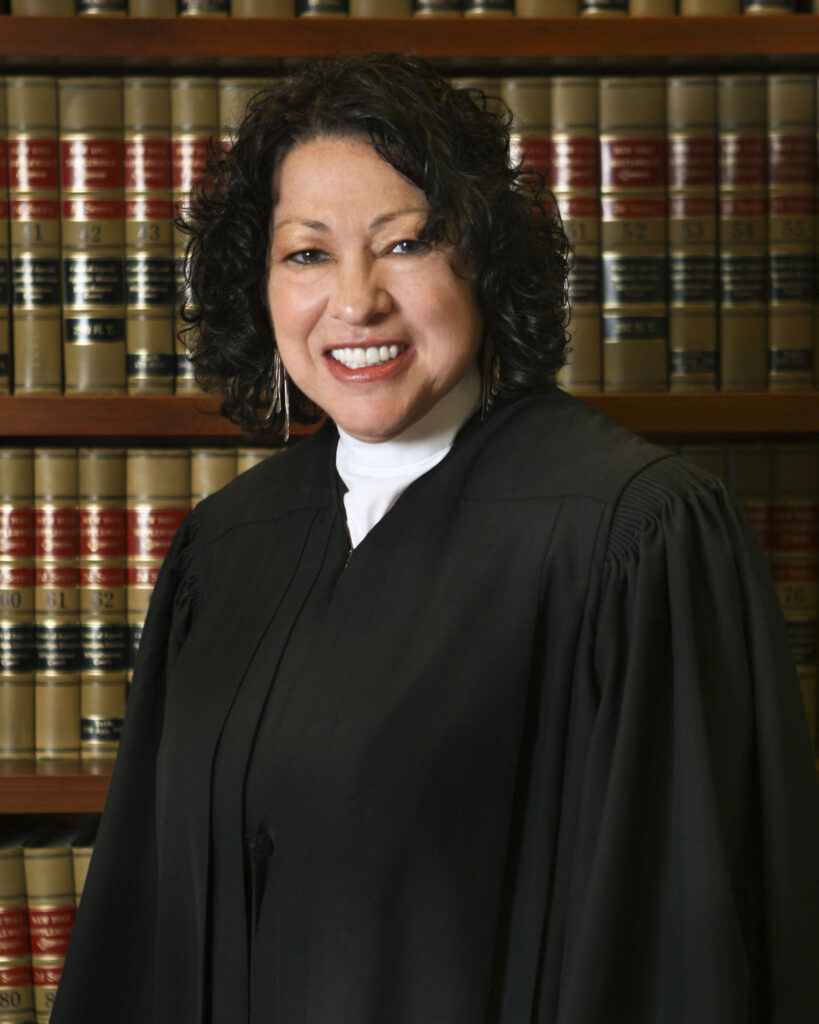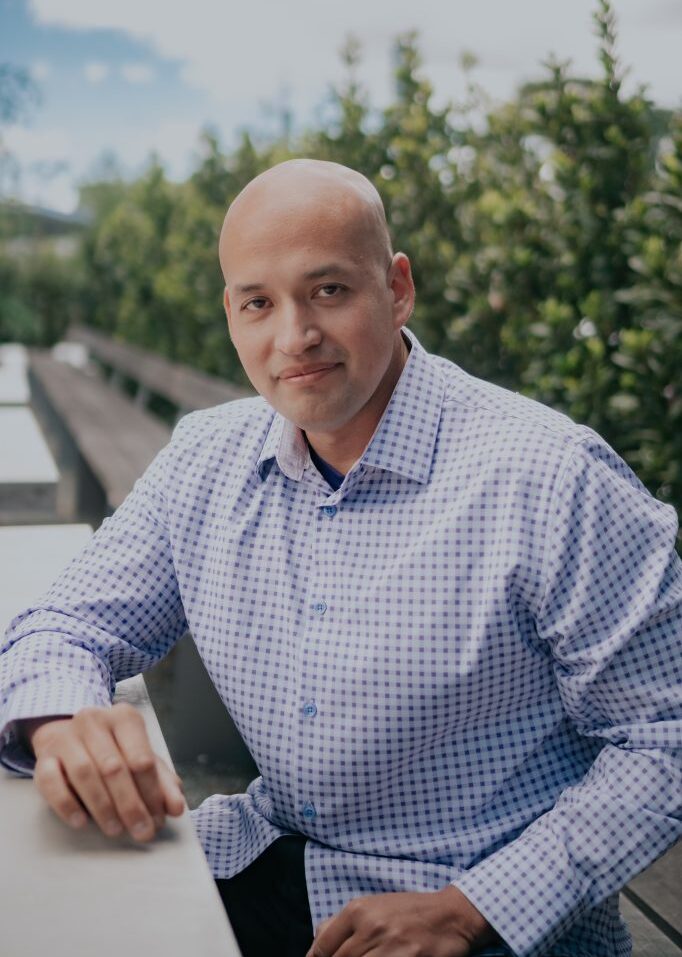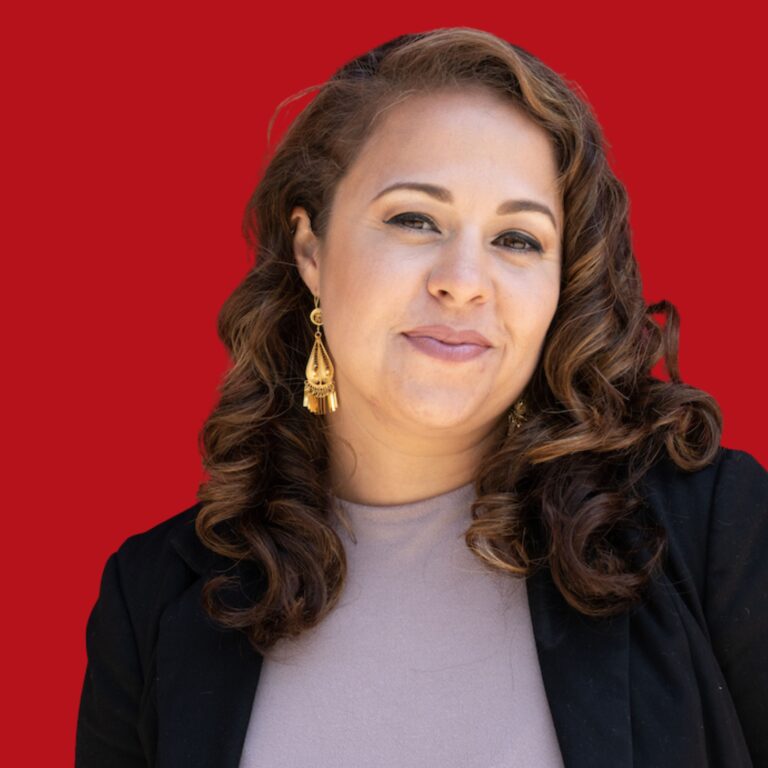Jesse Vasquez, Executive Director for the Pollen Initiative
By Edwin E. Chavez, Spanish Journalism Chair
Jesse Vasquez is currently the Executive Director for the Pollen Initiative, and previously was the San Quentin News Editor-in-Chief. He continues to advocate for social justice for incarcerated men and women. As a former lifer who spent 19 years behind bars, he understands the struggles of many incarcerated people.
He credits his success to the opportunity that he was given as writer and journalist, which had a monumental influence on his own change, rehabilitation, and growth. Vasquez found his purpose in life during his time with San Quentin News and rewards the newspaper with his philanthropic expertise in funding its budgetary requirements on an annual basis. He also recruits world-class writers and other professionals to mentor the incarcerated staff including Professor William J. Drummond of UC Berkeley, advisor Jan Perry, retired copy-editor of the Stringletter, and Pacific Sun, and John Eagan, retired AP journalist.
Vasquez is a prime example of what rehabilitation and success looks like after being released. Former governor Jerry Brown commuted Vasquez’s multiple life sentences, allowing him to go to the Board of Parol; he received parole in 2019. Vasquez has been providing direct support for the marginalized and underserved in the East Bay. He tutors and mentors youth as a volunteer for The Oakland Public Education Fund.
He was appointed by Gov. Gavin Newsom as an advisor for the California Model Committee, which aims to increase public safety through more pro-social prison programs, normalization, and rehabilitation for the incarcerated.
Vasquez’s perseverance has paid off. In the spring, his non-profit, the Pollen Initiative opened up the first-in-the-nation media center for incarcerated women at Central California Women’s Facility. His efforts made possible for incarcerated women to gain the same voice as he had gained through journalism.
Dolores Clara Fernandez Huerta, Co-founder of the United Farm Workers Association
By Michael Callahan, Staff Writer

Born April 10, 1930, Dolores Clara Fernandez Huerta emerged as an American labor and civil rights activist and a leader of the Chicano civil rights movement. She co-founded the United Farm Workers Association.
Her work with Cesar Chavez led to unionizing of farm workers in California in the 1960s. While serving in a leadership role of the Stockton Community Service Organization, she founded the Agricultural Workers Association, pressed local governments for barrio improvements, and set up voter registration drives.
Huerta advocated for immigrants, children, the working poor, and for women rights. Her lobbying resulted in legislation changes and program support. Gloria Steinem credited Huerta for women’s ability to partake in picket lines and helping with making their voices heard.
After suffering an assault by police officers in San Francisco while protesting policies of then-presidential candidate George Bush, she received an out-of-court settlement. Following her recovery, she traveled across the country for two years on behalf of the Feminist Majority’s Foundation of Power. Women representatives at the local, state, and federal levels increased considerably after her campaign.
Huerta’s accolades are quite extensive. In 2012, she received the Presidential Medal of Freedom, the highest civilian honor in the U.S., and in the preceding year, she was inducted into the California Hall of Fame.
Sonia Sotomayor, Associate Justice of the Supreme Court of the United States
By Michael Callahan, Staff Writer

Sonia Sotomayor, born June 25, 1954 in New York to Puerto Rican-descended parents, took her place as the first Latina U.S. Supreme Court Justice and the first woman of color to serve on the court. She attended Princeton University, where she received the Pyne Prize, the highest academic award given to undergraduates.
During her time in school, she had joined two campus Puerto Rican groups, the Third World Center and Acción Puertorriqueña.
After Yale Law School, Sotomayor started her legal career as an assistant DA in Manhattan, responsible for prosecuting robbery, assault, murder, and child pornography cases.
In 1984, Sotomayor entered private practice, running the solo law practice Sotomayor & Associates from her Brooklyn apartment, while serving on the board of the Puerto Rican Legal Defense and Education Board, the New York City Campaign Finance Board, and the Maternity Center Association.
Sotomayor became the first Hispanic federal judge in New York history in 1992. She was the youngest judge in New York’s Southern District and the first Puerto Rican woman judge in the federal judiciary. Nearly 20 years later, Barack Obama announced Sotomayor’s nomination to the U.S. Supreme Court.
A biography source had Sotomayor say, “I want to state up front, unequivocally and without doubt: do not believe that any racial, ethnic, or gender group has an advantage in sound judging. I do believe that every person has an equal opportunity to be a good and wise judge, regardless of their background or life experiences.”
Alex Sanchez, Co-founder of Homies Unidos
By Caesar Martinez, Journalism Guild Writer
Alex Sanchez stands out as a pillar of advocacy for social justice, equality, and human rights for many incarcerated individuals. A migrant from El Salvador, a co-founder of Homies Unidos in Los Angeles continues to promote rehabilitation for many.
Sanchez has a mission to end violence and promote peace in Central American communities through gang prevention. He wants to promote human rights in immigrant communities and the empowerment of youth and families in El Salvador and Los Angeles.
Hundreds of incarcerated men and women continue to benefit through reentry housing upon release — whether in the U.S. or elsewhere. Recently his organization has opened up reentry housing programs for deportees in to El Salvador and Mexico.
He migrated from El Salvador as a child in the 1970s, fleeing the height of a civil war brought on by military repression.
After his involvement in gangs, he served time in state prison and ended up deported to El Salvador. There he met Magdaleno Rose Avila, the founder of Homies Unidos, and others who strived for social change with a commitment to turn around lives and help other youth to do the same.
As an advocate for comprehensive intervention strategies, immigration reform and Black-Brown unity, Sanchez promotes racial tolerance and cultural understanding as a form of violence prevention.
He is committed to disenfranchised youth and their families in Los Angeles and in Central American.
Sanchez has consulted with academics, journalists, filmmakers, elected officials, non-profit agencies, and advocates at local, national, and transnational levels to address youth violence prevention and intervention.
For his efforts, he has received awards that include the Drum Major Award from the Martin Luther King Legacy Association.
Marlene Sanchez, Executive Director for the Ella Baker Center for Human Rights
By Edwin E. Chavez, Spanish Journalism Chair
Marlene Sanchez, the Executive Director of Ella Baker Center for Human Rights, is excited to celebrate her Hispanic Heritage. A native of San Francisco and a proud Chicana, movement leader, organizer, and a formerly incarcerated woman, she represents a pillar in social justice, advocating for better living conditions for incarcerated persons.
At a young age, Sanchez’s parents were not present in her life. Her mother was deported and her father was arrested and servED a term of 25 years in prison.
According to Sanchez, being ChicanaX, Chicanismo represents that we have been here before a border even existed. She proudly exclaimed during an interview, “Ni de aquí y ni de allá, Raza Jalisco.”
At age 11, she began to work at the Young Women’s Freedom Center, during this time, she was arrested for a school fight. She was not tall enough to be fingerprinted and had to stand on a stool.
While in custody at this early age, she saw several injustices on women of color. She became involved with social justice by advocating for legislation for pregnant women, concerning the rules that forced them to wear handcuffs while giving birth and later had to give away their children.
At 19 years old, she spoke on the first Critical Resistance Conference at UC Berkeley. She also helped with the treaties between L.A. and Chicago with people actively involved in gangs and she works for Communities United for Youth Justice. She also works as director for Legal Services for Prisoners with Children.
In an interview with San Quentin News, she stood outside CCWF protesting for the incarcerated women on a hunger strike after an August 2, 2024 incident, which led to the death of an incarcerated Black woman.
“I have always advocated for Black and Brown because we are the most impacted people incarcerated,” said Sanchez. “I have to fight all my life and we have to continue to fight for our civil rights so that we can live with dignity.”
To non-English speakers she said. “La fe es lo último que se pierde así que tenemos que seguir luchando.” (“Faith shall be the last thing that we lose, therefore we need to continue with the fight.”).


